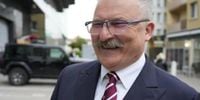Poland is gearing up for its presidential election set for Sunday, May 18, 2025, with significant implications for both domestic and overseas voters. Poles living abroad, including those in the Czech Republic, will have the opportunity to cast their ballots, but they must ensure they are registered by the deadline of Tuesday, May 13, 2025.
Voting locations in the Czech Republic are designated at three key sites: the Consulate General of the Republic of Poland in Ostrava at Blahoslavova 4, the Embassy of the Republic of Poland in Prague at Valdštejnska 8, and the Consular and Polonia Department of the Embassy at Truhlářská 13-15. Polling stations will operate from 7:00 AM to 9:00 PM, mirroring the hours across Poland.
To participate in the election, individuals must be Polish citizens aged 18 or older. They must submit an application to be included in the electoral roll by May 13, 2025, which can be done online, in person, or by mail. If no candidate secures more than half of the valid votes, a runoff election will take place on Sunday, June 1, 2025. Voters who registered for the first round will automatically be eligible for the second round, while others can apply for inclusion in the electoral roll until May 27, 2025. Applications for a certificate of the right to vote can be submitted until May 29, 2025.
The candidates vying for the presidency include a diverse array of individuals. Artur Bartoszewicz, 51, is an independent academic; Magdalena Biejat, 43, is a senator previously with the Left; Grzegorz Braun, 58, represents the Confederation of the Polish Crown; Szymon Hołownia, 48, is the Marshal of the Sejm and leads the Poland 2050 movement; Marek Jakubiak, 66, is a politician from the Federation for the Republic; Maciej Maciak, 54, is an independent journalist; Sławomir Mentzen, 38, is a tax advisor with the Confederation of Freedom and Independence; Karol Nawrocki, 42, is the president of the Institute of National Remembrance, supported by Law and Justice; Joanna Senyszyn, 76, is a former member of the SLD, now independent; Krzysztof Stanowski, 42, is also an independent journalist; Rafał Trzaskowski, 53, is the Mayor of Warsaw representing the Civic Coalition; Marek Woch, 46, is a lawyer with the Nonpartisan Local Government; and Adrian Zandberg, 45, is a member of the Razem party.
In the lead-up to the election, debates are becoming increasingly important. Another presidential debate aired on Telewizja Republika on May 9, 2025, just a week before the election silence begins. During this debate, candidates responded to questions about their visions for the presidency, with a unique format where experts, including Rafał Brzoska, the president of Inpost, posed questions. Marek Jakubiak, representing the Free Republicans, expressed his enthusiasm for the debate, stating, "I am in a fighting mood. I look forward to this meeting, another one in the Republic. I think I will manage the questions posed by Mr. Rafał Brzoska. As entrepreneurs, we should find common ground, even a common denominator."
One of the key topics discussed during the debate was the issue of social benefits, particularly the "800 plus" program, which has not effectively addressed Poland's declining birth rate. The moderator raised the question: "What is the main cause of the demographic crisis in Poland?" Karol Nawrocki, supported by PiS, emphasized his commitment to exempt families with two or more children from income tax and to defend social achievements like the 800 plus program. He stated, "In every point of my program, I refer to the fight against the demographic crisis. I will strive to exempt families with two or more children from PIT. But I will also defend social achievements, like 800 plus."
Adrian Zandberg from the Razem party highlighted the challenges young people face in starting families due to high housing costs. He stated, "If the state leaves elderly people in need, there are attempts at fraud, extortion of apartments. In Poland, young people cannot start families because apartments are very expensive." This sparked a lively discussion with Jakubiak, who insisted that the focus should be on supporting families with children and understanding why young people choose to have children abroad.
Szymon Hołownia, the leader of Poland 2050, stressed the need for a comprehensive strategy involving all political forces, stating, "We have the worst demographics in the EU today." He pointed out that half of people under 35 live with their parents and that simple solutions like the 800 plus program won't suffice. He emphasized the need for affordable housing, better prenatal care, and flexible labor laws to create an environment where families can thrive.
Joanna Senyszyn further articulated the necessity for municipal housing cooperatives and a shift in societal perceptions of motherhood. She argued, "It is important to change the approach. The image of the Polish mother as a martyr is outdated. In France, women have more children because of a different societal attitude."
Sławomir Mentzen noted the cultural shifts he observed while campaigning, stating, "I visited most districts and saw 'dying villages, abandoned beautiful Polish towns.'" He attributed these changes to a broader cultural phenomenon, asserting that it is not solely a Polish issue that people are hesitant to have children.
As the election approaches, the candidates will continue to engage in debates and discussions that highlight their differing approaches to Poland's pressing issues, particularly the demographic crisis and social policies. The outcome of the election will significantly influence the future direction of the country and its policies on family support, housing, and social welfare.




